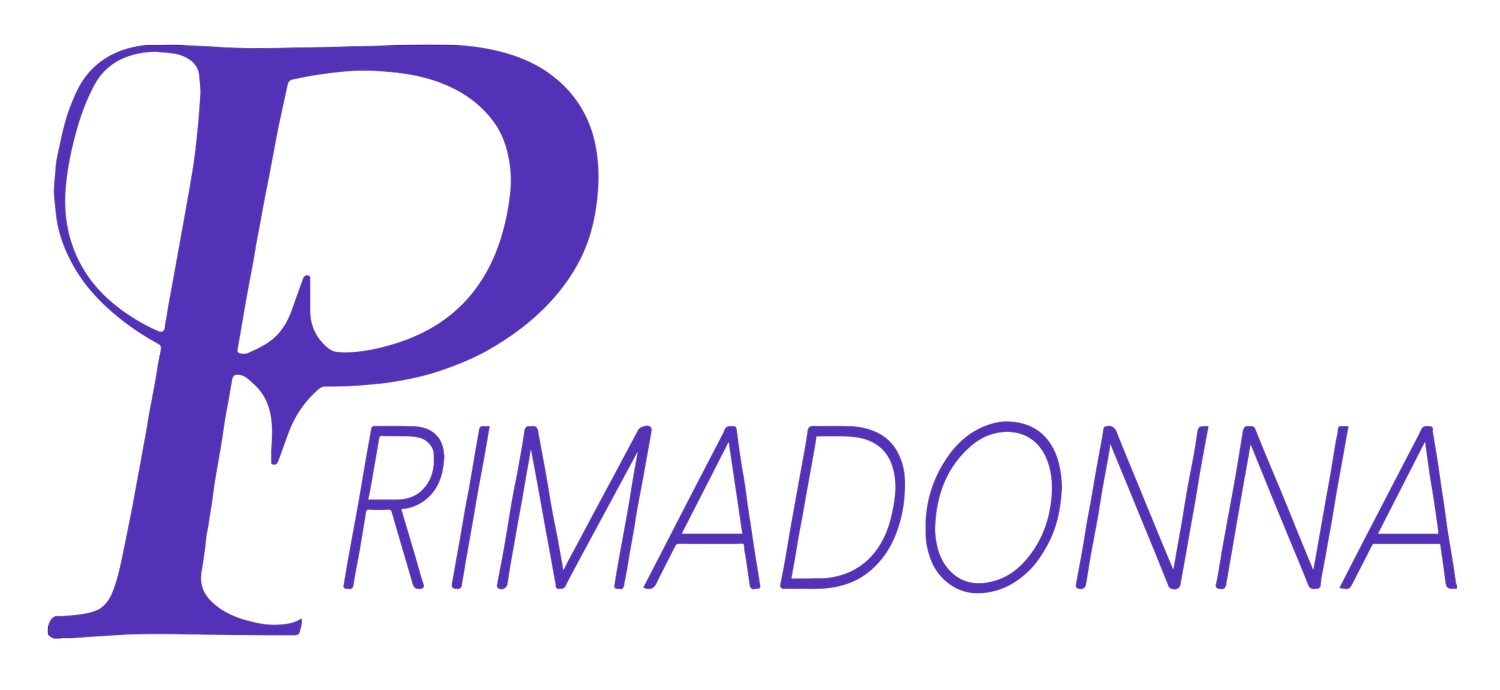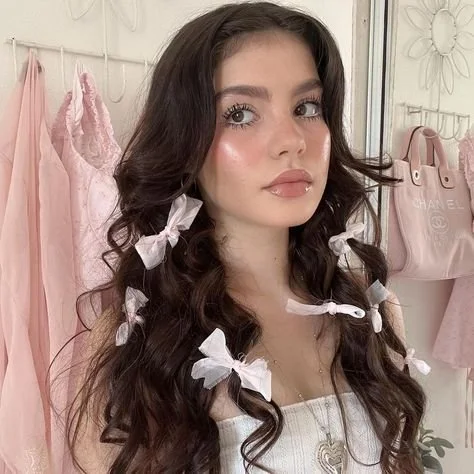Decoding The Girl Economy: The Tales of the Chronically Online
Welcome to Tales of the Chronically Online
Photo from Pinterest
Picture this: A precocious seven-year-old sprawled across her bedroom floor, scribbling away at a notebook, oblivious to the awing future awaiting her. Little did she know, she was going to be the first in her family to push the confines of her future, the first woman to leave home in pursuit of a unique education. The mere notion of leaving home for college or, better yet, moving to a city like New York, hadn’t even crossed her innocent mind, yet.
In her early years, her interest in fashion manifested in meticulously curated sketchbooks, filled with blank croquis, awaiting the strokes of her creativity. Nurtured by impeccably stylish women who imparted the gospel of beauty upon her, she naturally assumed her place in the world of fashion.
But God bless high school and all its hormonal meanderings and awkward experimenting, and God bless that one childhood friend who told her she should take Newspaper next semester. Unbeknownst to her, this seemingly ordinary choice would reveal an unexpected journey. Unlike her peers, she had no clue who she wanted to be when she grew up.
In the world of journalism, specifically as the fashion editor of her school newspaper, she discovered a profound calling—to grasp the microphone and magnify the unheard stories of others. And so, the trajectory of her future took an unexpected and riveting turn.
And now, she unveils to you the fruits of her labor—years spent experimenting, learning from mistakes, and cultivating relationships—all condensed into one carefully assembled package, tailored to your preferences.
Step into the Tales of The Chronically Online, your virtual confidant. This is the haven where we will delve into the pulsating heartbeat of the global cultural zeitgeist in fashion and beyond. Here, you'll encounter the vibrant personalities in my circle, each contributing to the canvas that paints my perspective of the world—a cast you'll undoubtedly grow fond of as this column grows.
So thank you for being here. Seven-year-old Haneen appreciates you, and twenty-one-year-old Haneen can’t wait to meet you. Presenting our first article, Decoding the Girl Economy.
Decoding the Girl Economy
When you’ve done as much scrolling as me, you get used to having a different label slapped on you everyday. According to TikTok I’m coquette, meets scandinavian clean girl, meets Lana-Del-Ray core meets Charlotte from Sex and the City, meets Red Taylor’s Version.
Yah… you let me know if any of that registers with you.
With a daily screen time surpassing seven hours, and nearly two of those dedicated to TikTok, you inevitably develop a sort of immunity to the sheer absurdity of it all. Sure, I might appear Charlotte-coded, but truth be told I could be more Speak Now TV-coded than the algorithm gives credit for.
Somewhere between being dubbed a "tomato girl" and going on "hot girl walks," a revelation dawned amid the fog of it all. The realization struck: did attaching the word "girl" to anything suddenly transformed it into a defined concept? Now here I am, enjoying half a jar of garlic-stuffed olives with a Pillsbury biscuit and a fun-size KitKat, and suddenly it's labeled as a "girl dinner." Good grief.
“Tomato Girl”
Photo from Pinterest
When did we simplify everything to just a handful of words? We hope someone grasps our message and magically, people always seem to get it the moment you append the word "girl" to it.
We've turned into living keyword generators, creating a tangible Pinterest board. We string a few words together, crossing our fingers that the algorithm—or in this instance, actual people—comprehend our message. I recently came across someone on my feed who posted a picture of falling leaves with the caption "happy evermore season." You mean Fall, right?
Don't get me wrong—I'm just as devoted a Swiftie as the next person. I frequently catch myself communicating solely through Taylor Swift lyrics or quotes. However, it seems like we're all evolving into human social search engines.
In moments of desperation and navigating conversations that might baffle anyone above 25, what could be a more fitting platform to seek advice from than an authentic social search engine? That's precisely when I turned to Diem—an exclusive social search engine crafted for women and non-binary individuals. It takes inspiration from the time-honored tradition of women sharing information across centuries.
Founded by Emma Bates, Diem strives to cultivate a safe haven for women—somewhere they can ask questions, whether anonymous or not, and have it been approached with a feminist perspective.
It's like if your trusted group chat, that intimate place where secrets are shared, is turned into a cutting-edge search engine. Here, advice expands beyond just your friends, but allows you to seek wisdom from women globally on navigating breakups, managing finances, and delving into personal aspects of hygiene and sexuality.
Bates found inspiration to establish Diem after her first experience with the morning-after pill left her scouring the internet for guidance and support.
My initial thought was, what is the incentive for responding to posts on this app, and much like the horrors of Reddit, how is it regulated? Bates explains that interaction is purely persona based. “Many people will say," Oh my friend has had this experience, so I’m going to nominate them to answer and so on.”
When it comes to censorship, Bates notes that inappropriate conduct hasn't posed a significant issue thus far, showing that Diem users value the platform as a secure space to share vulnerably and support one another. Naturally, my curiosity got the best of me, leading me to direct my inquiries to Diem.
I posted a question asking why we’re adding the word ‘girl’ to everything? What could it possibly mean? Expecting to get no responses due to the question’s lack of spice or drama, I was surprised to receive a few, very well thought out and solid responses.
Mily B responded “I really love the trend. For so long in all my work interactions and social situations (mostly with male friends) I have been called a girl.”
She continues, “everything associated with girlhood is bad in the eyes of these men. I’m so happy to reclaim the term girl to represent me, as an adult who loves all girly things.”
Francesca offered a more well-rounded viewpoint, emphasizing several valid arguments, "I believe many individuals are attempting to reclaim control over everyday activities, and also emphasizing that women approach things differently than the default male world. While I may not entirely agree with it, I find it rather enjoyable and lighthearted."
For these individuals on Diem, it seems like the trend kicked off in a lighthearted manner. Many view it as a celebration of the strength and resilience inherent in women, acknowledging the distinctive experiences shared by girls and women alike.
However, capitalism invariably manages to latch onto anything positive, contorting it for its own advantage. When questioned about its surge to an almost overwhelming ubiquity, Bates comments, "Capitalism is patchy in many ways; that's why these trends get spoiled. Marketers exploit these because of algorithms."
So how did the so-called ‘girl economy’ start? Where are its roots and how did it rise to popularity? Before there was girl dinner and girl math, there was girl power.
The term "girl power" gained prominence in the 1990s as part of the feminist movement, particularly associated with the third-wave feminism of that era. It became a slogan promoting female empowerment, independence, and strength. The phrase was popularized in mainstream culture through various mediums, including music, fashion, and entertainment.
One notable association is with the Spice Girls, a British girl group formed in 1994. The Spice Girls embraced the concept of "girl power" as a central theme in their music and messaging. They promoted the idea that women could be strong, confident, and supportive of one another. The Spice Girls' influence played a significant role in popularizing "girl power" as a cultural phenomenon.
The concept itself reflects broader feminist ideals, encouraging women and girls to embrace their capabilities, challenge gender stereotypes, and pursue their goals with confidence. While the origins of female empowerment and feminist movements trace back much further, the term "girl power" encapsulates a specific, popularized expression of these ideas in the late 20th century.
This marked the era when the phrase started appearing on every notebook, backpack, and sticker. I vividly recall being 11 and grabbing an orange and pink notebook, adorned with a retro font, boldly proclaiming "GIRL POWER.” I couldn't help but think, "Yes, I absolutely need this!"
While millennials may have brought girl power to the forefront, it's Gen Z that can be credited with pioneering the girl economy. Nevertheless, the girl economy remains elusive in its definition. Currently, it merely exists in the vast expanse of the internet, hovering, subtly alluded to, and patiently awaiting a precise definition.
Fortunately for you, dear readers, this column isn't titled "Tales of the Chronically Online" for mere amusement. I happen to be a self-proclaimed connoisseur of internet culture, backed by a formidable seven hours of screen time and a recently acquired crooked pinky, courtesy of incessant phone-scrolling.
The girl economy stands as a treasure trove of women-centric experiences, knowledge, and references crafted by women themselves. It embodies the epitome of progressive and inclusive girl power. Unfortunately, akin to many feminist movements, it has been gutted from the inside out in the name of capitalism.
The girl economy started as a way for women to create special spaces for those with a feminine perspective, regardless of gender. Doing things like a hot girl walk or embracing a fellow girly pop isn't limited to your actual gender.
Feminine people frequently encounter exclusion from certain spaces simply for expressing themselves in a feminine manner—whether through specific tones of voice or body language. Throughout generations, there has been an inadvertent suppression of femininity among women as they strive to conform to patriarchal norms.
In echoing Mily B from Diem, "Everything associated with girlhood is deemed undesirable in the eyes of these men." At what point in life did you decide that you disliked the color pink? Was it when that boy from math class ridiculed your pink notebook, or when older men assumed your preferences based on the color pink?
This underscores a crucial point. Girls often face ridicule, whether from boys or fellow girls, for enjoying stereotypically feminine things. After enduring years of teasing and, at times, bullying, individuals can develop resentment towards the very aspects that make them targets.
And so was born the pipeline experience of expressing femininity. You first shame it, leading you to reject it, only to return to it full speed ahead at a more secure point in your life. The resurgence of hyperfemininity, evidenced by the new trend of putting bows on everything, is no mere coincidence; it mirrors our current state of mind and psyche.
What a pure and beautiful concept, isn't it? A rite of passage, a coming of age—losing oneself in the journey of growing up, only to rediscover and wholeheartedly embrace it. Regrettably, it doesn't conclude there.
More than 80 percent of purchases and their influencing decisions are driven by women, making them the literal powerhouse behind the economy. Research suggests that if women were to cease buying cosmetic products and services, every economy worldwide would collapse overnight.
Any savvy business owner or marketer understands the importance of discerning what women desire and where they are willing to invest their money. This trend was evident with the surge of girl power merchandise. Suddenly, phrases like 'girl boss' and 'girl power' adorned cups, notebooks, backpacks, and t-shirts.
Madisyn Brown, a YouTuber and video essayist, expressed it eloquently, “No matter the vital intention behind a popularized female empowerment trend, consumerism always takes over and, at some point, degrades the concept.”
Consumerism works by overusing a phrase connected to a movement, making it less powerful, turning it into a joke, and giving men a new way to target and criticize women and their interests.
So, what do we find ourselves with? It almost appears as if women can’t have anything. Each time we create something for ourselves, a means to express our femininity, it's snatched away for the benefit of others.
One might view it with frustration, feeling powerless and out of control. Personally, I find it intriguing. While we're often reminded that we exist in a patriarchal society, subject to male influences, which is true in many cases, smart women look at it from a different angle.
My mother always emphasized that an insecure woman feels the need to shout and almost play the role of a man to assert herself. A wise woman understands that the most effective way to achieve things is to work behind the scenes and be the puppet master.
It may seem like we're all victims of a capitalistic, patriarchal society, but consider the facts. Women, with our influence, spending power, and intellect, are the ones propelling the world forward. Despite the girl boss movement being co-opted by consumerism, look at what we've gained. This year, 52 out of 500 companies are led by female CEOs, marking an 18% increase from 44 last year.
These movements have indeed achieved something substantial; they're not just internet phenomena. They are making a positive impact on society. The girl economy is more than just a buzzword. Girl math and girl dinner are here to stay as women assert their right to take up space for themselves.


